”Das tolle Jahr” is back in Europe
It really seems that the year 2024 has started with rather ominous signs. Obviously, the crazy year is emerging in Europe (like that of 1848) but the mainstream media resume lying and hiding the real state of affairs.
German protest movement
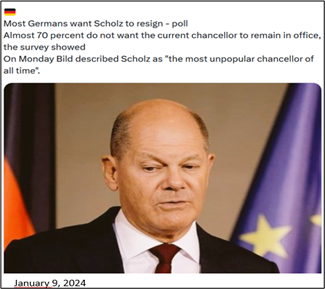
Since January 8, German farmers have blocked cities and roads across the country, using tractors and trucks, to protest cuts to tax subsidies, kicking off a series of strikes that have left Scholz’s government in difficulty.
According to Joachim Rukwied, head of the German farmers’ association, “This is only the first step. Our position remains unchanged: both cut proposals must be taken off the table, it is also about the future viability of our industry and the question of whether domestic food production is still necessary.”
In Berlin, the first tractors arrived in front of the Brandenburg Gate on Sunday evening. Even in Bavaria, thousands of tractors have been on the streets protesting since the early hours of the morning. The mobilization, called by the German Farmers’ Union (DBV), will last until January 15, but has already paralyzed traffic in many German cities. It is the first of a series of demonstrations against the government’s fiscal policy. From January 10th, three days of strike are planned for the railway networks, a necessary framework for the mobility of German citizens.
According to German lawyer Andre Thomashausen, the German protest movement will not be limited to farmers; on the contrary, it will only expand. “Widespread poverty has returned to Germany for the first time since the 1950s.” So, the impoverished, dissatisfied burghers will, over time, express their protest more and more loudly and demand changes in politics. “I think this is the beginning of a civil rebellion. Like the “yellow vests” in France”.

Just like their German colleagues, French farmers are also protesting against the cuts: a month ago several quintals of cow dung were dumped on the Champs Elysees and in front of the Elysée, which has become the symbol of the anger of French farmers. In the Netherlands and Belgium, farmers’ protests date back to March 2023. In both cases, thousands and thousands of demonstrators participated. In particular, in Holland it is estimated that on 11 March 2023, ten thousand people marched through the center of The Hague. The Resistance is growing now. Poland, Luxembourg, the Netherlands, Austria, Hungary, Switzerland & France will close highways from 8:00 a.m. on January 9 in solidarity with German farmers!
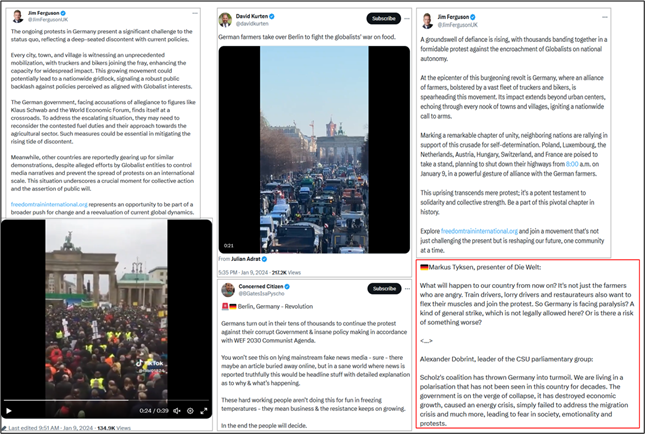
The German political-financial crisis exploded at the end of the year, when the German Constitutional Court declared the country’s second supplementary budget for 2021 null and void. The judges in Karlsruhe deemed the use of economic resources for the pandemic crisis in favor of the green transition illegitimate. A 60 billion euro cut that forced the German government to rewrite the budget, because the law provides for a debt margin limited to 0.35 percent of GDP in structural terms. The government had to cut spending by 17 billion euros. That money was found by cutting economic subsidies for agriculture. Farmers feel cheated and are watching what is happening in the East. While on the one hand the government led by Scholz penalizes agricultural production, on the other it had no difficulty in allocating a monstrous sum to supply weapons to Kiev.
Germany’s crisis, however, has even deeper roots. The current German economic slowdown concerns the “geopolitical” choice of Germany. Germany had the access to supplies of Russian fossil fuels, of which the most important was natural gas, at competitive prices compared to those of other Western countries. In this way it was able to fuel the development and strengthening of the manufacturing and heavy component of its industry, creating very important economic and infrastructural ties (gas pipelines) with Russia.
The outbreak of the Ukrainian crisis and the consequent crisis in relations between Russia and NATO countries has further exacerbated the problems related to the supply of raw materials, both “traditional” ones, such as fossil fuels, and “new” ones, used for the energy transition promoted by Brussels. The loss of stable and secure supplies is therefore a first important factor impacting the German economy. Industries with high energy consumption, such as steel mills and the chemical sector, have suffered the most from the backlash of the loss of cheap Russian gas, so much so that they appealed directly to the government to stem the high energy costs, especially with regards to electricity production.
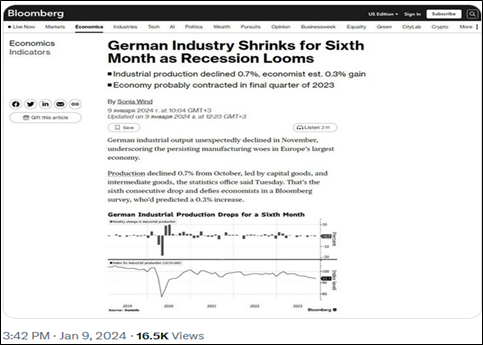
The EU lost €500M from sanctions against Russia, Bundestag deputy Matthias Moosdorf. “Sanctions only affect the West. In Russia itself, they strengthen the mentality of a “besieged fortress”. The actual costs of sanctions for the EU have probably already exceeded €500M”
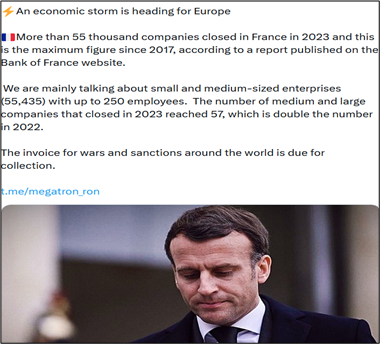
Swedish war mass hysteria
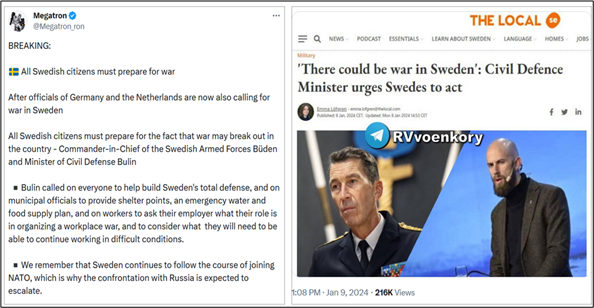
Firstly, the Netherlands and then Sweden . . . mass hysteria is a contagious disease!
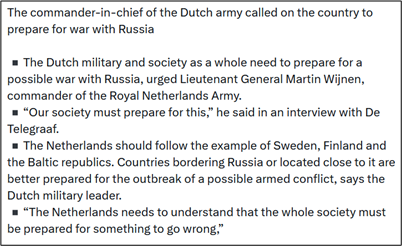
Attempt of colour revolution in Serbia
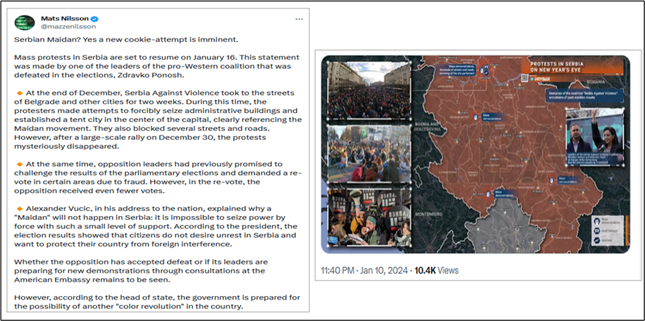
In this case, ex-Yugoslavia’s disintegration process is still lurking.
Confusion in the EU – business as usual
BRUSSELS (Politico) — European Commission President Ursula von der Leyen wants to get to a deal on new Ukraine aid “as quickly as possible,” she said on Friday, January 5.
The issue of the €50 billion aid package for Ukraine landed back on her plate at the occasion of the start of the Belgian presidency of the Council of the EU — which placed her again in front of the Brussels press corps after the December summit where Hungarian Prime Minister Viktor Orbán blocked approving new EU funds for Ukraine.
The United States is shifting the burden of the war with Russia onto Europe. Europe happily complies. The European Commission is preparing an alternative aid package for Ukraine worth €1 billion, – EC President Ursula von der Leyen: Kiev may receive this financing option, if at the summit on February 1 the EU countries fail to approve a four-year support program worth €50 billion.
Ukraine’s debt burden for a loan of 20 billion euros, which the European Union (EU) intends to allocate to Kiev, bypassing Hungary’s veto, may fall on the shoulders of the Europeans themselves. “If Ukraine does not win the conflict and cannot repay the loan, 20 billion euros will be lost, then European citizens will have to return them,” stated the French politician and leader of the Generation Frexit movement Charles-Henri Gallois.
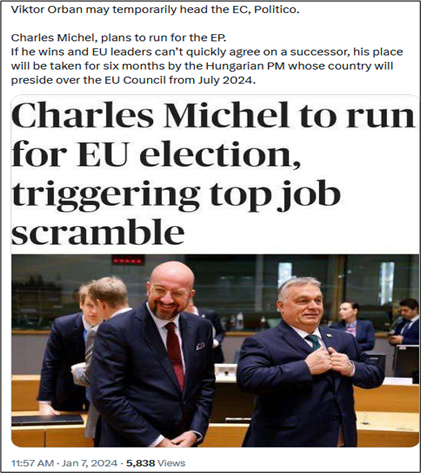
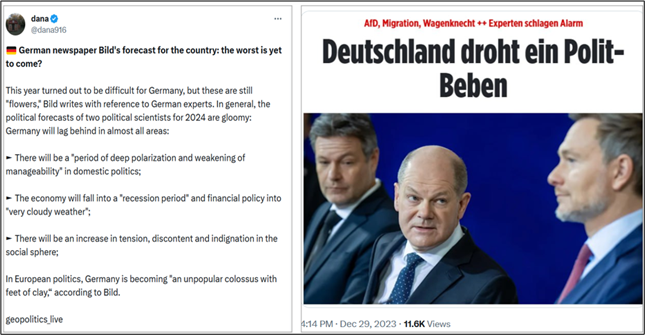
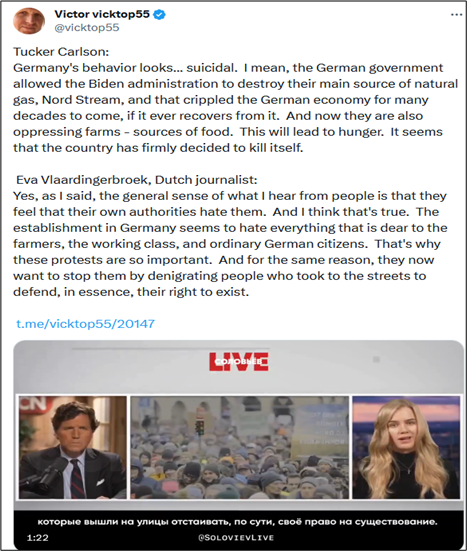
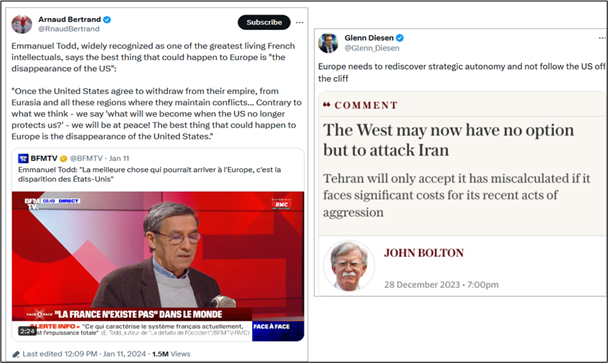
Turmoil is expanding . . . now in Poland.
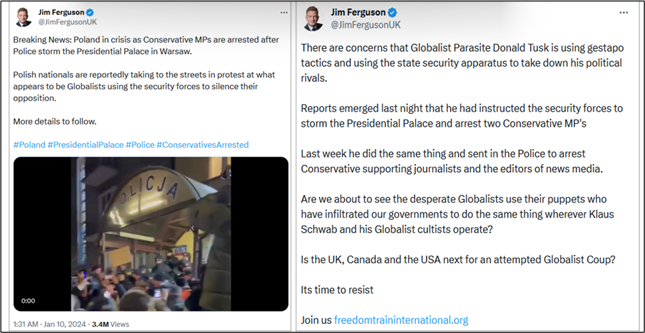
Confiscation of Russian State assets – the biggest bank robbery of all time
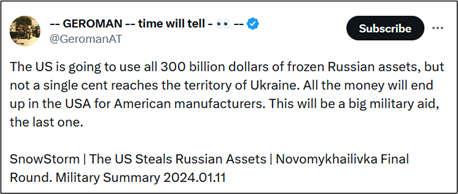
If/when the US and EU authorities start practical measures in this case, the consequences will be gigantic – especially in the international currency and finance markets.
Perfect Storm is waiting for those actors, the whole base and structure of those markets will be shaking and collapsing.
Climate change & CO2 – complete fabrication
Fossil free future, the key aim of the EU . . . at any cost. The entire energy production and management in Europe is under annihilation by the current Commission.
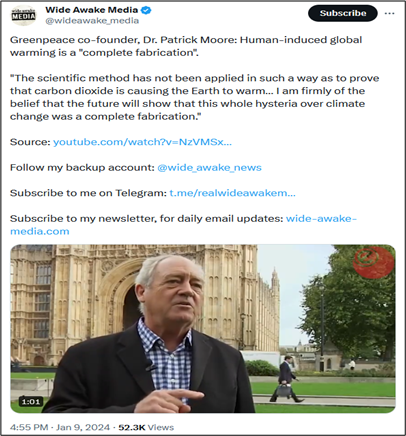
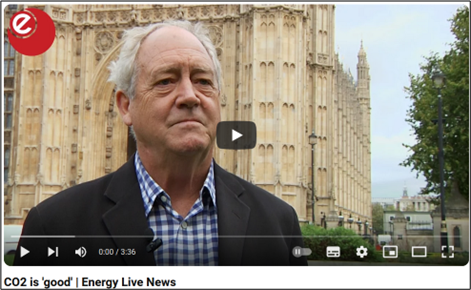
Greenpeace Co-Founder Patrick Moore explains to ELN why he believes carbon dioxide is “good” and climate change is a “fabrication”.
Closing words
In addition to those above-mentioned things, the war in Ukraine is going the other way round. Russia has managed to get the upper hand, is advancing on all frontlines and makes devastating strikes on the infrastructure in the rear areas of Ukraine. AFU’s troop losses have exceeded well over a half million servicemen and total mobilization is facing great difficulties.
The EU Commission has turned blind eye on all horrifying events in Ukraine and stubbornly continue bulldozing money in this Ukrainian blackhole, to the detriment of its own citizens.


